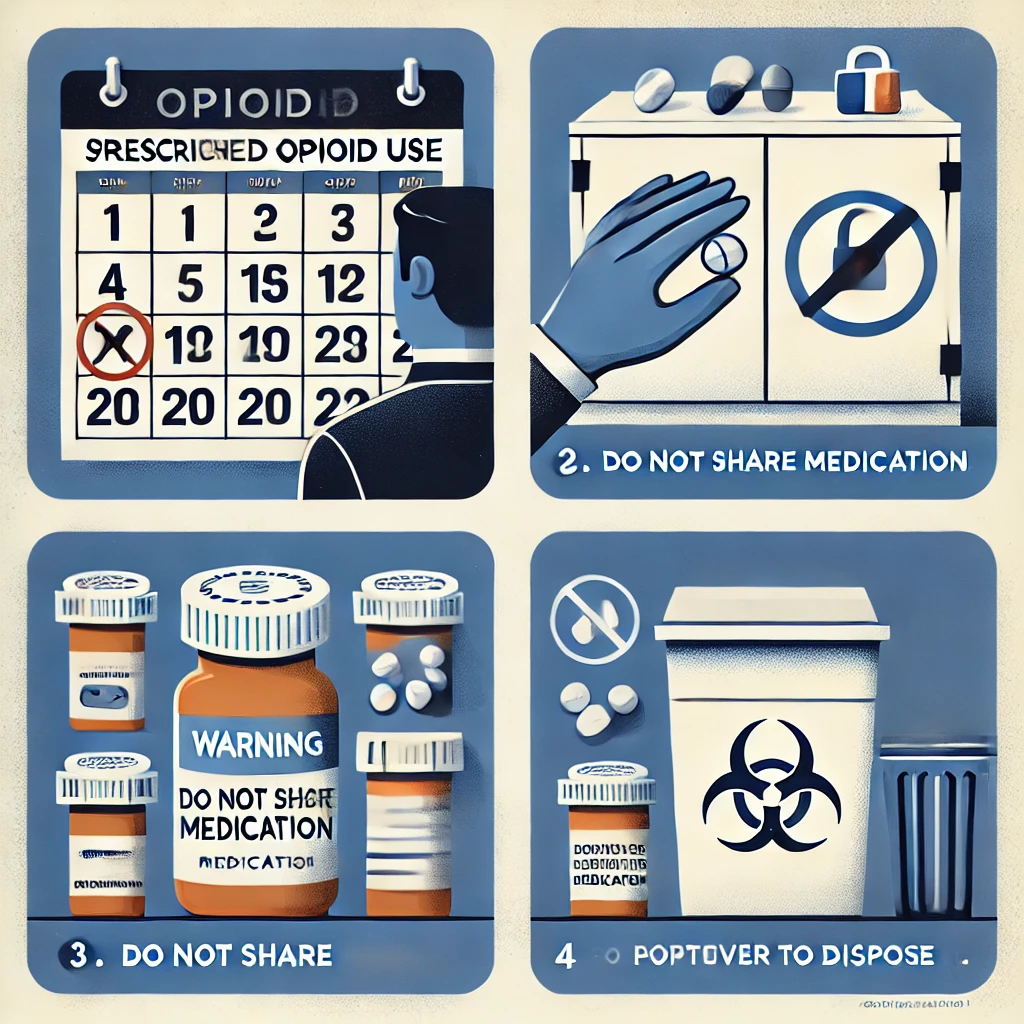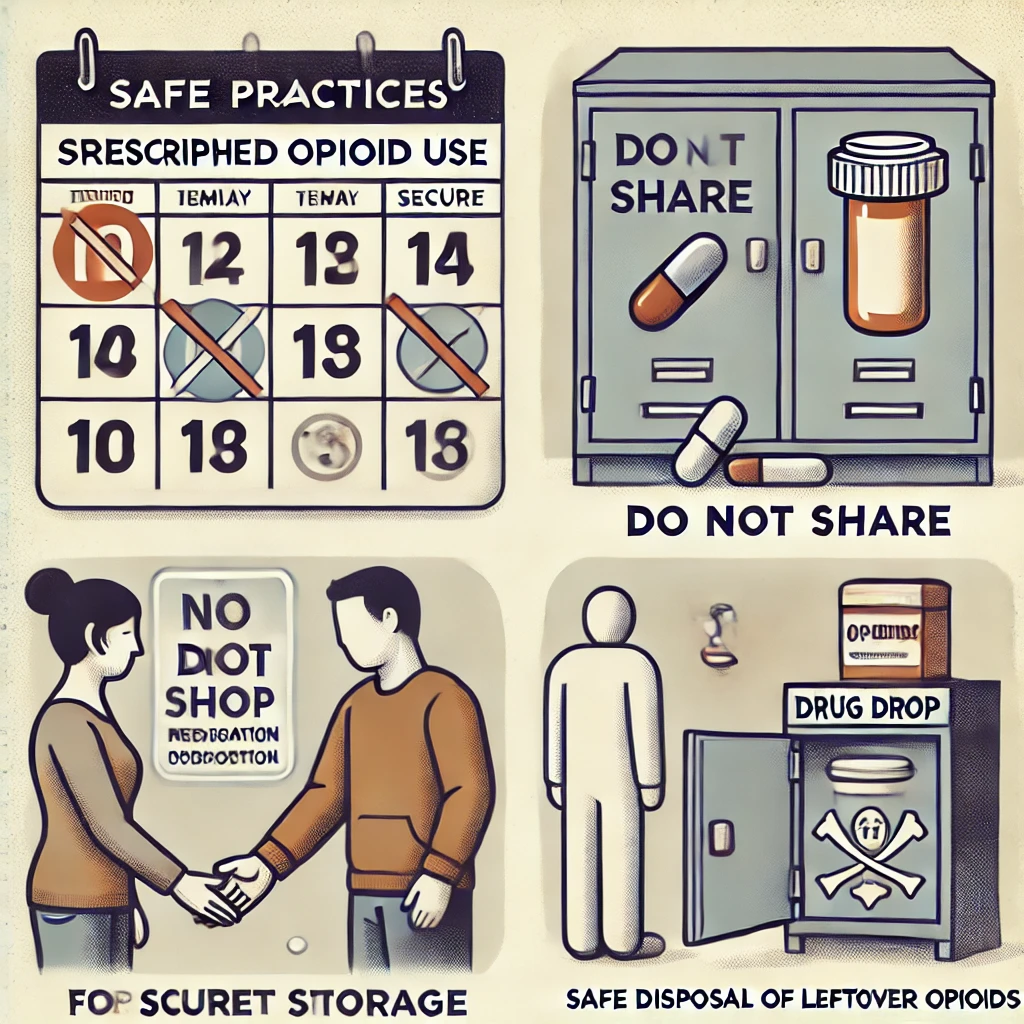
Fresno Stands Up to Overdose: Inside the Narcan Awareness Event at New Life Recovery
On June 19, 2025, a powerful gathering took place at the corner of Broadway Street and Nevada Avenue in Central Fresno. Community members, first responders,
If you’ve been prescribed opioids for pain management, it’s crucial to use them responsibly. While opioids can be effective for managing severe pain, they also carry significant risks, including dependency, overdose, and other serious health issues. This blog will outline key practices to help you use prescribed opioids safely and effectively.
1. Limit Your Opioid Use
Opioids should only be used for as long as necessary. Unlike antibiotics, where completing the full course is essential, you should stop taking opioids as soon as your pain begins to subside. Stick to the dosage and schedule prescribed by your doctor, and never take more than directed. The sooner you can reduce or stop your use, the lower your risk of developing dependency or other complications.
2. Never Share Your Medication
Opioids are prescribed based on your specific medical needs, and what is safe for you may not be safe for someone else. Sharing your medication with others can lead to accidental overdose or severe side effects. Always keep your medication to yourself, and remind others to do the same with theirs.
3. Safely Store Your Medication
Proper storage of opioids is crucial to prevent accidental ingestion by children, pets, or others who might misuse them. Keep your medication in a secure place, ideally in a locked box or cabinet, out of reach and sight of others. Avoid leaving opioids in easily accessible locations like countertops or medicine cabinets that are frequently used by multiple people.
4. Dispose of Leftover Medication Safely
Once you no longer need your prescribed opioids, it’s important to dispose of them safely to prevent misuse. Don’t keep leftover opioids “just in case” your pain returns. Instead, take any unused medication to a drug drop box or a take-back event in your community. Proper disposal reduces the risk of accidental ingestion or intentional misuse by others.
Conclusion
When used as prescribed, opioids can help manage pain, but they also come with risks that must be carefully managed. Limiting your use, not sharing your medication, storing it securely, and disposing of leftovers safely are all essential steps in using opioids responsibly. By following these guidelines, you can reduce the potential dangers associated with opioid use and protect both yourself and those around you.

On June 19, 2025, a powerful gathering took place at the corner of Broadway Street and Nevada Avenue in Central Fresno. Community members, first responders,

For individuals who inject opioids, the risks are heightened due to the method of use and the potential for infection. Safe practices are crucial to

Using opioids, whether prescribed or otherwise, comes with serious risks, including overdose, addiction, and other health complications. While the safest approach is to avoid misuse,